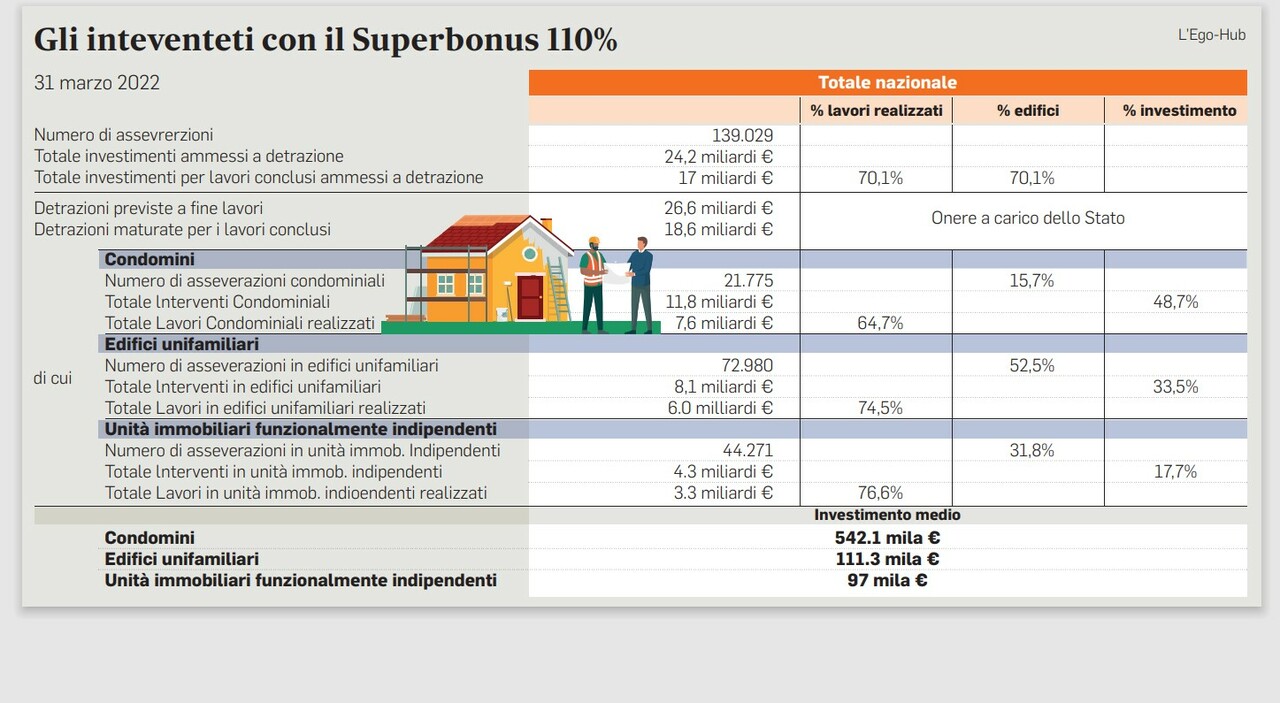Banks stopped. The rush in recent weeks has prompted institutions to immediately close their doors to new applications for the sale of building allowances. Orders, in general, exceeded the threshold of 40 billion euros. After stopping at the cuts at the beginning of the year due to Maxi-scams and a decision government Limiting sales to contain it, the influx resumed. Driven by course correction at Palazzo Chigi and Tesoro reopened for multiple credit transfers. First by capping three changes of hands, then raising it to four in the last week by power decree.
However, the lowered car pulled the handbrake again. The side effect of the new system which states, in effect, that the ultimate buyer is a bank or an insurance company. It has run out of “space” in the banks. A corporation can only purchase tax rewards as long as its state tax liability allows it. The more bonuses you buy, the more debt you reduce. If you reset it, the discounted rewards will become a loss. Intesa, which closed its doors to new operations, had already written off $20 billion. Poste has bought nearly $8 billion with a limit of $9 billion from “space”. In short, the Superbonus risks running out of financial oxygen. The government, as we said, agreed to the possibility of a “fourth” sale to banks by an energy decree. Thus, the latter will be able to sell the bonuses to their customers who have the financial space to be able to deduct them from taxes.
mechanism
But the mechanism does not seem conclusive. Palazzo Chigi and Tesoro seemed reluctant to favor this 4th pass system. The first version of the approved regulation stipulated that banks should remain “jointly” on credit. If it turns out that the credit will not be due in the future, they will have to foot the bill. Paragraph removed after protest. But there are still other risks that make the mechanism difficult to implement. First of all, the impossibility of splitting credit. If the bank, for example, discounts a loan of 10 million for a period of 10 years, and if it wants to sell it, it must pass it all over to the acquiring company. This mechanism is specifically designed to avoid large frauds, such as the 1.2 billion one that is made possible precisely through continuous traffic and splitting of earned credits.
obstacle
Now, however, is a hitch. The second step that makes the fourth credit assignment process complicated is the fact that before the bonus can be sold to a company, the bank must have completed the previous steps. Therefore, after discounting the bill, there should be two transactions in a “protected environment”, between banks. Only after that it can be transferred to a third party. Too stressful.
However, this knot will be resolved in the next decree that the government is preparing to approve immediately after Easter, most likely on April 21. Palazzo Chigi has already given his consent to these changes, and has agreed to the agenda containing them all.
Also in the upcoming decree, which will mainly deal with helping the economy, the Superbonus for villas will be extended from June 30 to August 31 or September 30. There will also be a rule to state that 30 percent of the work to be done is valid as a whole and not for each individual intervention. We’ll see if they’ll be the latest changes to the only real endless construction site: those about house bonus rules.
© Reproduction reserved






Leave a Reply